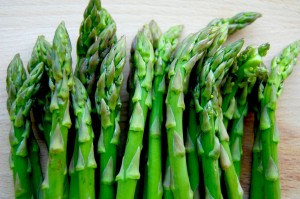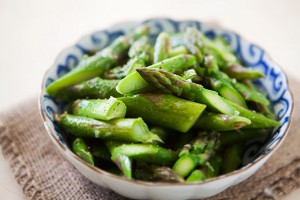The fake assumptions on the seasons of young shoots are here set to be over thrown. Here are some fragile information about the fact.
The actual Spargelsaison season:
The mid- summer is consider to be the fond season for white asparagus but then the end-summer i.e. some where at the later April or early spring must be the apt grower of young white shoots. Well though the urgers in Germany make those with the floor heater to begin the season in advance.
No more love for asparagus as it was. Can make more cheaper than affordable one when the Cravers are done.
However, the earlier it is the asparagus, the more coveted it usually is. The offer is not so great. Can wait a few days so save money. Because the middle of the season, when the first cravings for the white bars is breastfed, asparagus is usually cheaper and more affordable.
And you should also pay close attention before mid-April, often while there are already white asparagus, but it is often imported from abroad. Who swears German asparagus, certainly prefer to wait a few more days and then strike.
Why the asparagus (Spargelsaison) season ends on June 24?
The last of the asparagus season is June 24, St. John’s, engraved. Although there may be outstanding after this date asparagus could be harvested and eaten, but yes that would spoil the crop for next year. Because asparagus needs sufficient time to prepare for the cold and to prepare for the winter. Since there are usually from 24 June until the first frost at least 100 days, and this one hundred days accrue to the asparagus to refer to these Preparation, the asparagus season ends just before the end of June.
Check out nine reasons why you should add asparagus (Spargelsaison) to your diet.
Anti-inflammatory: Asparagus contains many anti-inflammatory nutrients such as saponins and flavonoids quercetin, rutin, isorhamnetin laempferol, which all help fight arthritis, asthma and autoimmune diseases.
 Antioxidants: It has glutathione, which brings three amino acids (glumatic acid, glycine and cysteine) that combine themselves into a molecule, serving as a powerful oxidizing-reduction agent to our body. Along with the antioxidants from vitamin C, vitamin A (beta carotene), zinc, manganese and selenium, the glutathione present in the asparagus also combat free radicals which cause aging and cell oxidation.
Antioxidants: It has glutathione, which brings three amino acids (glumatic acid, glycine and cysteine) that combine themselves into a molecule, serving as a powerful oxidizing-reduction agent to our body. Along with the antioxidants from vitamin C, vitamin A (beta carotene), zinc, manganese and selenium, the glutathione present in the asparagus also combat free radicals which cause aging and cell oxidation.
Cancer Prevention: It is well known that chronic inflammation and cell oxidation can lead to various types of cancer. With its anti-inflammatory and antioxidant properties, asparagus is a strong fighter against cancer in the bladder, breast, colon, lung, prostate, and ovaries, among others.
Heart: Folate, a vitamin B complex, is essential for a healthy cardiovascular system and is found in abundance in asparagus. Firstly, it is involved in a biochemical event called methylation cycle, which allows for proper transcription of DNA, transformation of norepinephrine to adrenaline and serotonin to melatonin. Secondly, the folate regulates the homocysteine amino acid, which at high levels can be a strong risk factor in heart diseases. And finally, the B-complex vitamins, such as choline, biotin and pantothenic acid manages our blood sugar levels effectively, metabolizing sugars and starches.
 Congenital Disorders: Folate is also essential for proper cell division. Healthy portions of asparagus can prevent folate deficiency, which has been linked to birth defects such as spina bifida (a congenital defect in which the spinal cord is exposed through an opening in the vertebral column).
Congenital Disorders: Folate is also essential for proper cell division. Healthy portions of asparagus can prevent folate deficiency, which has been linked to birth defects such as spina bifida (a congenital defect in which the spinal cord is exposed through an opening in the vertebral column).
Diuretic: The amino acid asparagine, found in asparagus, is an effective diuretic and has been historically used to treat swelling, arthritis, rheumatism and water retention caused by PMS.
Diet and Digestion: The inulin, a carbohydrate present in asparagus, encourages the growth of bifidobacteria and lactobacilli, two bacteria that increase absorption of nutrients and reduces the risk of allergy and colon cancer, besides helping to prevent unfriendly bacteria to take hold in our intestinal tract. Moreover, an eight ounce serving of asparagus contains more than 11% of the RDA of fiber and almost 10% of the RDA of protein. The healthy fiber and protein content in asparagus stabilize our digestion, inhibits excesses, keeps a low amount of sugar in the blood and prevents constipation. And finally, a cup of asparagus also contains only 43 calories.
 High in Vitamin K: Asparagus is an excellent source of vitamin K (providing 114% of the RDA in a single cup), which is required for the osteocalcin synthesis, a protein that strengthens bone composition. Furthermore, vitamin K prevents accumulation of calcium in our tissue, which could lead to atherosclerosis, cardiovascular diseases and stroke.
High in Vitamin K: Asparagus is an excellent source of vitamin K (providing 114% of the RDA in a single cup), which is required for the osteocalcin synthesis, a protein that strengthens bone composition. Furthermore, vitamin K prevents accumulation of calcium in our tissue, which could lead to atherosclerosis, cardiovascular diseases and stroke.
High in Vitamin C: As mentioned above, Asparagus contains a large dose of vitamin C (more than 30% of the RDA). Other health benefits associated with vitamin C intake include lower blood pressure, healthy immune system and resistance to age-related eye diseases such as cataracts and macular degeneration.